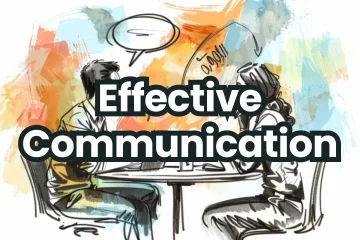We all strive to improve ourselves, whether it’s for career advancement or personal growth. Once you’ve identified the skill you want to enhance—like speaking confidently in front of an audience, mastering social media, or interpreting data—where do you begin? While the approach to learning can differ based on the skill and the individual, some universal strategies can help.
For instance, if you want to improve public speaking, you might start by joining a local Toastmasters club to practice regularly and receive constructive feedback. Similarly, for mastering social media, you could follow online tutorials and engage with relevant communities to stay updated with the latest trends. The key is to take a structured approach that suits your personal learning style.
Insights from the Experts
In today’s fast-paced business world, continuously improving your skills is essential. Heidi Grant Halvorson, a motivational psychologist and author of Nine Things Successful People Do Differently, emphasizes that in a competitive environment, it’s not enough just to be intelligent—you need to keep growing smarter. Joseph Weintraub, a professor at Babson College and coauthor of The Coaching Manager: Developing Top Talent in Business, adds that seeking new challenges, even when they feel uncomfortable, is crucial for ongoing progress. To enhance your skills effectively, consider following these key principles:
Assessing Your Readiness
Before diving into learning a new skill or competency, it’s important to evaluate two key factors. First, consider if your goal is realistic. As Joseph Weintraub points out, “There are certain limits to what you can learn.” For instance, aspiring to become a brain surgeon without the necessary hand-eye coordination might not be feasible.
Second, think about how much time and effort you can invest. Weintraub notes, “Self-improvement isn’t as simple as picking up a prescription from the pharmacy.” It requires dedication and hard work. Heidi Grant Halvorson concurs, saying that many people wrongly believe that needing to work hard at something indicates a lack of talent. Instead, understand that mastering a new skill demands significant commitment. If your goal is realistic and you’re ready to put in the effort, you’ll be more likely to succeed.
Ensure the Skill is Relevant
Joseph Weintraub advises that before you commit to learning a new skill, you should assess its relevance to your career or organization. For instance, if you’re eager to improve your public speaking, consider whether this skill aligns with your current job responsibilities or future career goals. If your role doesn’t require public speaking and your manager doesn’t value it, you may find it difficult to secure training resources or support. Learning a new skill is an investment, so it’s crucial to understand how it will benefit your professional development. For example, if you work in marketing and want to master data analysis, this skill can help you make better strategic decisions and could lead to promotions or new opportunities.
Understand Your Preferred Learning Style
To effectively learn a new skill, it’s important to identify how you learn best. Some people absorb information best through reading or looking at graphics, while others prefer watching demonstrations or listening to explanations. Some thrive with hands-on experiences. According to Heidi Grant Halvorson, you can discover your optimal learning style by reflecting on past learning experiences. Make two lists: one for experiences that worked well and another for those that didn’t. Analyze what made the successful experiences effective and what led to the less effective ones.
For example, if you found that interactive workshops helped you grasp concepts better than traditional lectures, you might benefit more from learning environments that offer practical, hands-on opportunities.
Seek the Right Support
Getting support from others can significantly boost your learning process. Look for someone who has already mastered the skill you’re aiming to develop. This could be a colleague or a mentor outside your immediate team, rather than just your boss, who might have to evaluate your progress. Joseph Weintraub suggests asking yourself, “Who else in my organization would notice my improvements and provide honest feedback?”
For example, if you’re learning a new language, find a colleague who is fluent and ask for their guidance. You might say, “I admire how fluent you are in [language], and I’m working hard to improve my skills. I’d love to spend some time learning from you and getting your feedback.” If you can’t find a mentor within your organization, consider seeking help from industry professionals or network contacts. Heidi Grant Halvorson highlights the importance of finding the best teacher available, whether it’s within your organization or from external sources.
If you can’t find a mentor at work, look for help from other sources. For example, you might hire an online language tutor or a face-to-face language instructor. These professionals can offer structured lessons and personalized feedback that will help you improve your skills. Halvorson emphasizes that finding a skilled teacher, regardless of where they come from, can make a big difference in your learning journey.
Start Small
Improving yourself can seem daunting, so it’s important to start with manageable steps. Joseph Weintraub advises, “You can’t tackle everything at once. If you try, you might end up accomplishing nothing.” Instead, pick one or two skills to work on and break each one into smaller, achievable goals. For instance, if you’re aiming to become more assertive, you could begin by setting a goal to contribute to discussions in meetings within the first five minutes. This approach makes the process less overwhelming and more manageable.
Reflect and Seek Feedback to Improve
As you work towards mastering a new skill, it’s crucial to reflect on your progress. Without regular reflection, the new skill might not become second nature. Experts like Halvorson and Weintraub recommend discussing your journey with others. Halvorson suggests sharing your goals with people who can offer support, whether it’s information or encouragement. Weintraub adds that even if the person you talk to doesn’t have all the answers, their support can help you stay motivated and honest about your improvements. For example, if you’re learning to play the guitar, sharing your practice sessions with a friend can provide you with constructive feedback and keep you committed to your learning goals. Talking about your progress helps you gain insights, stay on track, and make the new skill truly yours.
Challenge Yourself by Teaching Others
A great way to accelerate your learning and practice a new skill is by teaching it to someone else. This approach not only reinforces your own understanding but also helps you gain new perspectives. For example, if you’re mastering a new software tool, consider sharing your knowledge with your team or offering to lead a training session. Setting a “teaching” date or agreeing to conduct a workshop in the future can give you a clear goal and make your learning process more structured. By preparing to teach, you’ll stay motivated and ensure that your learning is both practical and effective.
Practice Patience in Your Learning Journey
When you start learning a new skill, it’s easy to expect quick results, but Halvorson points out that this mindset can be unrealistic. Developing a new skill often takes time and effort. According to Weintraub, it usually takes six months or more to really master something, and even longer for others to notice your progress. For example, if you’re learning a new language, don’t get discouraged if you don’t see immediate fluency. People around you might only recognize a small portion of your improvement, so it’s important to be patient and focus on your own growth. The key is to stay committed and understand that mastery is a gradual process.
Key Principles to Keep in Mind
Do:
- Choose a Relevant Skill- Pick a skill that is important to your organization and valued by your manager.
- Break It Down- Divide the skill into smaller, achievable tasks to make learning more manageable.
- Reflect Regularly- Take time to review what you’ve learned and identify what still needs improvement.
Don’t:
- Work in Isolation- Don’t try to learn the skill alone. Seek guidance and feedback from others.
- Depend Only on Your Boss- While your manager’s input is important, consider getting advice from others who aren’t involved in your evaluations.
- Expect Immediate Results- Recognize that developing a new skill usually takes at least six months, so be patient with the process.




